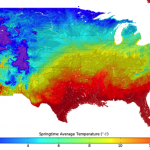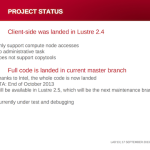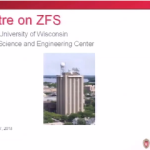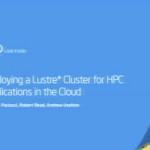New climate prediction studies from NASA can help climate scientists, hydrologists, land and natural resource managers, city planners, engineers and others understand the effects of future climate conditions.
Archives for September 2013
Kathy Yelick on Helping Supercomputing Users Get Science out of Their Data
Over at LBNL, Jon Bashor has posted an excellent interview with Associate Laboratory Director Kathy Yelick on the future of supercomputing. I think the scientific process is about to undergo a transformation, in the same way that the Internet has combined with web content and search engines to revolutionize every aspect of our lives. Far […]
Argonne’s Marc Snir Receives 2013 Seymour Cray Award
Parallel computing expert Marc Snir has been named the recipient of this year’s IEEE Computer Society Seymour Cray Computer Engineering Award.
HP and Nvidia Set Up New Testing Lab in France to Speed GPU Adoption
HP and Nvidia have opened a new research lab to help software vendors and developers tackle HPC challenges using the latest technology from the two companies.
Mellanox Goes GA with MetroX Solutions
Today Mellanox announced the general availability of its new MetroX series of long-haul, low latency RDMA interconnect solutions.
Video: Lustre/HSM Binding is Here!
In this video from the LAD’13 Lustre Developer Conference, Aurélien Degrémont, CEA from CEA presents: Lustre/HSM Binding is There! HSM client support is an important milestone for Lustre-HSM projectm which has been going on for while. Lustre-HSM enables Lustre to be readily used for tiered storage. Using a cloud storage as the second tier with […]
Will Europe Out Compute to Out Compete?
Europe is looking to move industry forward by embracing HPC.
Lustre on ZFS at SSEC
With the release of Lustre 2.4 support for ZFS Lustre servers has arrived. Historically, Lustre has only supported ext4/ldiskfs servers and while those servers have performed well they do suffer from a number of well known limitations. Extending Lustre to use a next generation filesystem like ZFS allows it to achieve greater levels of scalability and introduces new functionality.
High-Temp Superconductors Open the Door for Fault-Tolerant Quantum Computing
Researchers have demonstrated high-temperature superconductivity, opening the door for fault-tolerant quantum computing.
Deploying a Lustre Cluster for HPC Applications in the Cloud
Amazon has several storage related services, but there is no shared file system service. It seems there is a need for a parallel file system like Lustre.









